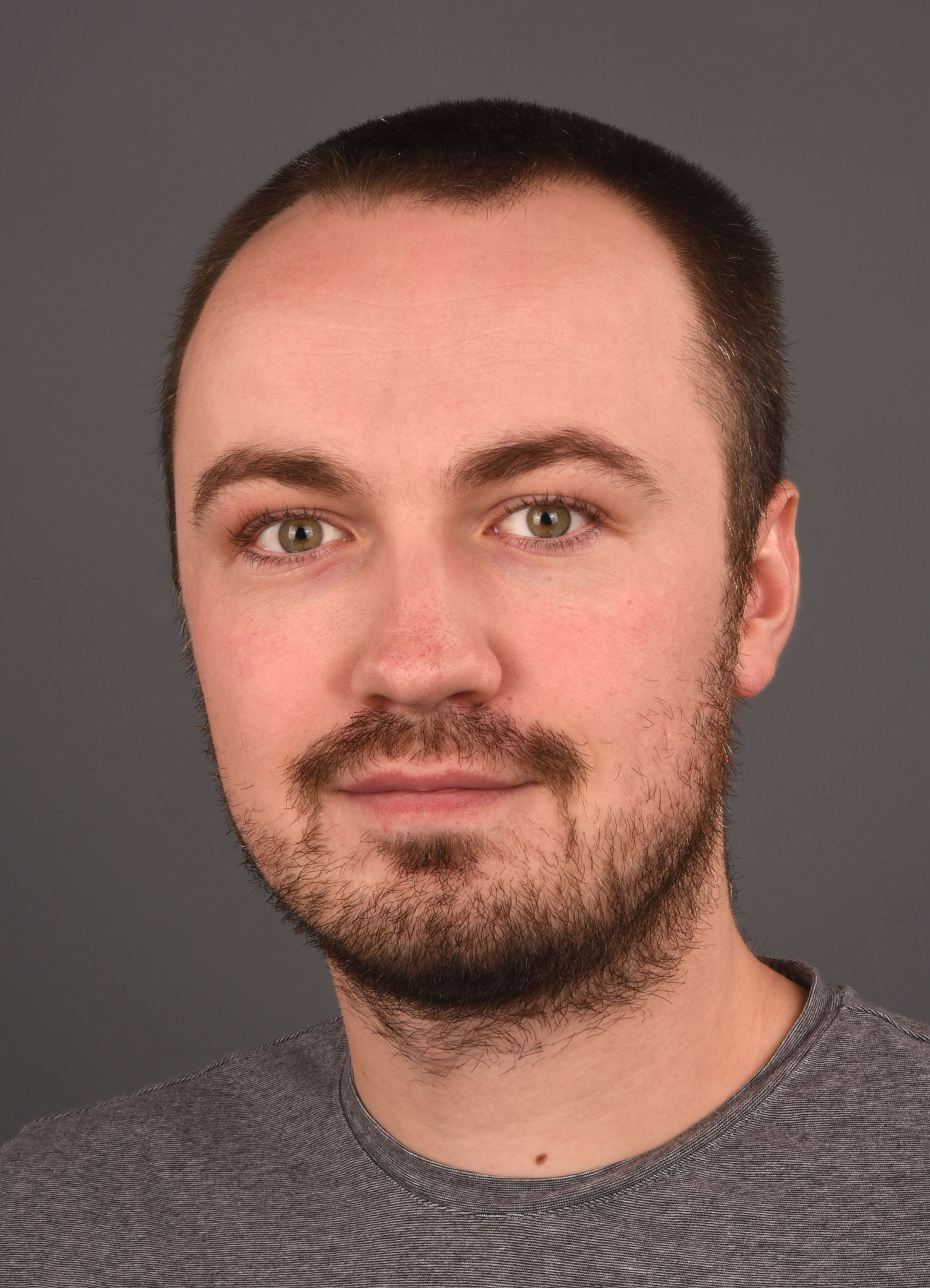Awards
 Promising Scientist Award
Promising Scientist Award
The Promising Scientist Award acknowledges those who have performed superior research in Posture and/or Gait early in their career. It entails a certificate as well as an amount of $1000 (USD) for travel expenses to attend the ISPGR World Congress.
The awardee is expected to give a 25 minute plenary presentation +5 minutes of questions at the ISPGR Congress. Priority will be given to young scientists with more established, independent careers with regular ISPGR status.
2025 Winner

Christopher McCrum
Maastricht University
Dr. Christopher McCrum (Chris) completed his PhD between 2015-2019 at Maastricht University, supervised by Dr. Kenneth Meijer and Dr. Kiros Karamanidis. His thesis focused on improving the biomechanical assessment of perturbed walking stability and on adaptation mechanisms of stability, to inform more effective fall-prevention methods. During his PhD he visited the lab of Dr. Avril Mansfield (Toronto Rehabilitation Institute) with The International Society for Biomechanics International Travel Grant. His thesis was awarded the Dutch Society for Movement Sciences PhD Thesis Prize 2019. Since then, he is an Assistant Professor in the Department of Nutrition and Movement Sciences, Maastricht University, where he continues researching the assessment and intervention of fall risk in older people using task-specific approaches closely mimicking common causes of falls. Between 2021 and 2023 he visited the lab of Prof. Alice Nieuwboer (KU Leuven) with an NWO Rubicon grant where he contributed to studies on the cognitive control of walking during perturbations in Parkinson’s disease. With a Maastricht University – Hasselt University Joint Doctorate Grant in 2022 and an internal NUTRIM Young Investigator Seeding Grant in 2024, Chris continues to lead research on the task-specific improvement of fall risk. Chris has enjoyed many collaborations with other ISPGR members, leading to impactful contributions on the margin of stability, vestibular gait and on perturbation-based balance training for falls prevention. Chris is also currently vice chair for working group 3 of the European-wide PhysAgeNet network, which focuses on research methodology for technology-assisted physical activity and exercise interventions in old age.
Requirements:
To be eligible for the award, a candidate must (please declare the requirements in your submission):
- be an ISPGR member in good standing
- must have been awarded a PhD at the time of submission
- be no more than six (6) years post PhD degree on January 1st 2025 (documented parental/sick leaves will be taken into consideration)
- submit all required supporting documentation listed below before the submission deadline
Supporting Documentation
Prior to the application submission deadline, each candidate must:
- submit her/his/their full curriculum vitae
- submit up to three 1st author papers (pdf format)
- provide an interpretative summary (one 8” x 11” page limit) describing their research contribution to the field of Posture and Gait including a statement on the impact (clinical/translational/scientific) of their work and their level of independence
- Documentation of dates and duration of leave(s), if applicable
Award submissions are open from October 1, 2024 – January 6, 2025. Please submit required documentation via email to
Past Winners
2023 Brisbane, AUS: Toby Ellmers, Imperial College London
2022 Montreal, CAN: Kaylena Ehgoetz Martens, University of Waterloo
2019 Edinburgh, GBR: Jennifer Yentes, University of Nebraska at Omaha
2017 Ft.Lauderdale, USA: Sjoerd Bruijn, Vrije Universiteit Amsterdam
2015 Seville, ESP: Melvyn Roerdink, MOVE Research Institute, The Netherlands
2014 Vancouver, CAN: Ross Clark, Australian Catholic University, Australia
2013 Akita, JPN: Alain Frigon, Universite de Sherbooke, Canada
2012 Trondheim, NOR: Dan Marigold, Simon Fraser University, Canada
 Emerging Scientist Award
Emerging Scientist Award
The Emerging Scientist award acknowledges those who have performed superior research in Posture and/or Gait early in their career. It entails a certificate as well as an amount of $1000 (USD) for travel expenses to attend the ISPGR World Congress.
The awardee is expected to give a 15 minute plenary presentation +5 minutes of questions at the ISPGR Congress.
2025 Winner

Benjamin Filtjens
KU Leuven
Benjamin Filtjens is a Postdoctoral Research Fellow at the KITE Research Institute of the University Health Network in Canada. Funded by the Data Sciences Institute at the University of Toronto, his research focuses on developing data-efficient machine learning models for analyzing human movement. He earned his PhD in Electrical Engineering Technology from KU Leuven in Belgium, focusing on AI-driven analysis of freezing of gait severity in Parkinson’s disease. His research agenda focuses on two core challenges: creating robust human movement analysis algorithms and advancing data-driven rehabilitation technologies. By focusing on these areas, he aims to enable accurate measurement in real-world settings and personalized interventions that improve patients’ motor function and quality of life. This research agenda he tackles together with a team of 5 talented PhD candidates that he mentors as a co-supervisor. In June 2025, he will join Delft University of Technology in the Netherlands as an Assistant Professor.
Requirements:
To be eligible for the award, a candidate must (please declare the requirements in your submission):
- be an ISPGR member in good standing
- must have been awarded a PhD at the time of submission
- be no more than three (3) years post PhD degree on January 1st 2025 (documented parental/sick leaves will be taken into consideration)
- submit all required supporting documentation listed below before the submission deadline
Supporting Documentation
Prior to the application submission deadline, each candidate must:
- submit her/his/their full curriculum vitae
- submit up to three 1st author papers (pdf format)
- provide an interpretative summary (one 8” x 11” page limit) describing their research contribution to the field of Posture and Gait including a statement on the impact (clinical/translational/scientific) of their work
- Documentation of dates and duration of leave(s), if applicable
Award submissions are open from October 1, 2024 – January 6, 2025. Please submit required documentation via email to
Past Winners
2023 Brisbane, AUS: Paulo Henrique Silva Pelicioni, University of New South Wales
2022 Montreal, CAN: Riona McArdle, Newcastle University
2019 Edinburgh, GBR: Deborah Jehu, University of British Columbia
2017 Ft. Lauderdale, USA: Patrick A Forbes, Erasmus Medical Centre
 Best Talk and best poster awards
Best Talk and best poster awards
Best Poster Award for Postdoctoral Fellows
In addition to the Aftab Patla Innovation Award, awarded to student poster presenters, ISPGR also offers two best poster awards for Postdoctoral Fellows. One award will be for basic science and one for clinical science. Recipients will be chosen from a panel of researchers based on several criteria including:
- creativity and originality of research
- clarity of presentation
- level of understanding
REQUIREMENTS:
To be eligible for the award, a candidate must:
- be an ISPGR post-doc member in good standing
- present a poster presentation to the award reviewers (may be anonymous)
Note: The Best Poster Award for post-docs is for poster presentations only. If you apply for and are selected for an oral presentation, you are not eligible for the poster award but will be in contention for the Best Talk Award. Winners will be announced onsite at the World Congress.
Past Winners
2022 Montreal, CAN
Basic Science
Martin Zaback, Temple University
“Changes to cortical potentials time-locked to discrete postural events during postural threat exposure”
Catherine P Agathos, Smith-Kettlewell Eye Research Institute
“Eccentric viewing shifts subjective visual vertical perception”
Clinical Science
Tyler T Whittier, Colorado State University
“Bayes’d and Confused: Bayesian inference reveals decreased sensorimotor uncertainty as a result of Transcutaneous Electric Nerve Stimulation (TENS)”
Best Virtual Poster Award for Postdoctoral Fellow
Basic Science
Mark A Laylor, University of Waterloo
“Markers of reactive control in stance”
Sean D Lynch, Jewish Rehabilitation Hospital
“Perceiving virtual human emotional gait is task specific for individuals following moderate-to-severe TBI”
2019 Edinburgh, GBR
Basic Science
Lorenz Assländer, University of Konstanz
“A balance control model for vestibular loss subjects balancing on a tilting support”
Clinical Science
Lisa Alcock, Newcastle University Institute for Ageing
“The effect of walking speed on cortical activity in young and older adults”
Honourable Mention:
Clinical Science
Samuel Stuart, Oregon Health and Science University
“Cortical response to open and closed-loop tactile cueing during walking and turning in Parkinson’s”
2017 Ft. Lauderdale, USA
Basic Science
Hendrik Reimann, Temple University
“Phase-dependency of the balance response to Galvanic vestibular stimulation during walking”
Clinical Science
Lisa Alcock, Newcastle University Institute for Ageing
“Effect of obstacle contrast on visual behaviour in Parkinson’s disease”
Honourable Mention:
Basic Science
Douglas Martini, Oregon Health and Science University
“The interaction of cholinergic activity, gait, balance, and attention in mild cognitive impairment”
Best talk by a trainee award
One best talk award will be awarded to a student/post doc member of ISPGR who presents an individual oral presentation at the World Congress. Recipients will be chosen from a panel of researchers based on several criteria including:
- creativity and originality of research
- clarity of presentation
- level of understanding
REQUIREMENTS:
To be eligible for the award, a candidate must:
- be an ISPGR student/post doc member in good standing
- present an individual oral presentation at the World Congress to the award reviewers
Note: The Best Talk Award by a Trainee is for ISPGR student or post doctoral member individual oral presentations only. The winner will be announced onsite at the World Congress.
Past Winners
2023 Brisbane, AUS
Basic – Student
Sheryl Bourgaize, Wilfrid Laurier University
“Collision avoidance behaviours of young adult walkers: Influence of a virtual pedestrians age-related appearance and gait profile”
Clinical – Student
Emma Packer, Newcastle University
“Exploring the impact of levodopa on real world digital mobility outcomes in people with Parkinson’s disease”
Post-Doc
Chloe Hinchcliffe, Newcastle University
“All measures of gait variability associated with sleepiness and fatigue in immune and neurodegenerative disorders: Insights from the IDEA-FAST feasibility study”
2022 Montreal, CAN
Meghan Kazanski, The Pennsylvania State University
“Probability of Instability: A new statistic that resolves the margin of stability paradox”
Alejandro J Lopez, Emory University
“Descending cortical modulation of spinal sensorimotor circuits is reduced in neurotypical older adults during postural and volitional muscle activation”
2019 Edinburgh, GBR
David Cole, Utah State University
“An invisible hand: Automatic preparation for arresting a fall when viewing a handrail”
Honourable Mention:
Maarten Afschrift, KU Leuven
“Deficient tibalis anterior activity following inward perturbation during walking predisposes elderly to use stepping rather than ankle strategies to control balance”
2017 Ft. Lauderdale, USA
Robyn Mildren, University of British Columbia
“Learning to balance on a slackline: Kinematic and spinal reflex adaptations”
Aftab Patla Innovation Award
The ISPGR Awards Committee will offer two student poster presentation awards in honour of Dr. Aftab Patla. One award will be for basic science and one for clinical science. Recipients will be chosen from a panel of researchers based on several criteria including:
- creativity and originality of research
- clarity of presentation
- level of understanding
Requirements
To be eligible for the award, a candidate must:
- be an ISPGR student member in good standing
- present a poster presentation to the award reviewers (may be anonymous)
Note: The Aftab Patla Innovation Award is for student poster submissions only. If you apply for and are selected for an oral presentation, you are not eligible for a poster award but will be in contention for the Best Talk Award. Winners will be announced onsite at the World Congress.
Past Winners
2023 Brisbane, AUS
Basic Science
Anna Render, Penn State University
“Trade-offs in lateral foot placement regulation on curvilinear paths”
Clinical Science
Lotte Hagedoorn, Radboud University Medical Center
“Action observation with motor simulation improves reactive stepping responses following strong backward balance perturbations in healthy young individuals”
2022 Montreal, CAN
Basic Science
Laurence Lai, Concordia University
“Age differences in working memory and cue utilization during postural recovery”
Clinical Science
Olivia Samotus, London Health Sciences Centre
“Neuroimaging and neurophysiological changes associated with freezing of gait and visual-motor performance improvements following spinal cord stimulation therapy in Parkinson disease patients”
2019 Edinburgh, GBR
Basic Science
Wouter Staring, Donder Institute, Radboud University
“Does transcranial direct current stimulation improve reaction times of people after stroke during balance perturbations, gait initiation, or voluntary movement?”
Clinical Science
Bryant Seamon, Ralph H Johnson VA Medical Center
“Influence of body weight supported treadmill training parameters on muscle coordination in hemiparetic walking”
Honourable Mentions:
Clinical Science
Janis Kim, University of Illinois at Chicago
“The frequency and circumstances of falls reported by unilateral lower limb prosthesis users”
2017 Ft. Lauderdale, USA
Basic Science
Hikaru Yokoyama, The University of Tokyo
“Cortical processing underlying split-belt treadmill gait adaptation: an EEG study”
Clinical Science
Savitha Subramaniam, UIC
“Dance for Stroke: A virtual-reality dance based exercise to increase cardiovascular fitness and community ambulation in individuals with chronic stroke: A preliminary study”
Honourable Mentions:
Basic Science
Stuart Mackenzie, University of Birmingham
“Differential Effects of Vision Upon the Accuracy and Precision of Vestibular-Evoked Balance Responses”
Trina Mitchell, McGIll University
“Comparison of the neural correlates of complex walking in healthy young adults and middle-aged adults during real locomotion”
Clinical Science
Alberto Fung, University of Houston
“Smarter Balance System: Smartphone-based biofeedback technology for clinical and/or home-based balance rehabilitation”
2015 Seville, ESP
Aftab Patla Award Clinical Science
Winner: Niklas Lofgren – ‘Construct Validity of the Mini-BESTest in mild to moderate Parkinson’s Disease’
Honorable Mention: Julian Luppo – ‘Perceived Timing of Auditory and Inertial Cues During a Fall’
Honorable Mention: Jennifer Wong – ‘The impact of falls on functional recovery after discharge from in-patient stroke rehabilitation’
Aftab Patla Award Basic Science
Winner : Aurelie Fontan – ‘Cerebral network subtending proprioceptive processing in children from 7 to 10 years’
Honorable Mention: Whitney Cole – ‘Bouts of Steps: The Organization of Infant Walking’
Honorable Mention: Eric Beck – ‘Gaze behaviour in freezers may relieve processing demands’
2014 Vancouver, CAN
Aftab Patla Award Clinical Science: Courtney Pollock, University of British Columbia, Canada for the poster ‘Anticipatory postural reactions and arousal state during external perturbations are altered in people with stroke’
Aftab Patla Award Basic Science: Zoe Miranda, Université de Montréal, Canada for the poster ‘Presynaptic control of balance in healthy subjects’
2013 Akita, JPN
Aftab Patla Award Clinical Science: Hideki Nakano, Kio University, Japan for the poster ‘Effect of a plantar perceptual learning task on walking stability in the elderly; a randomised control trial’
Aftab Patla Award Basic Science: Taku Kitamura, Shibaura Institute of Technology, Japan for the poster ‘Phase modulation of corticospinal excitability for forearm muscle during voluntary leg stepping’
2012 Trondheim, NOR
Aftab Patla Award Clinical Science: Takashi Yoshida, University of Toronto, Canada for the poster ‘Cardiovascular response of individuals with spinal cord injury to dynamic functional electrical stimulation under orthostatic stress’
Aftab Patla Award Basic Science: Anahid Saradjian, Laboratory of Neurobiology and Cognition, France for the poster ‘Facilitation of somatosensory potentials depends on the balance constraints during motor preparation of a step: A microgravity and normogravity study’
2009 Bologna, ITA
Aftab Patla Award Clinical Science: Michael Schwenk, University of Heidelberg, Germany for the poster ‘Dual task performance can be improved in patients with dementia’
Aftab Patla Award Basic Science: Chantelle Murnaghan, University of British Columbia, Canada for the poster ‘Feedback during COM stabilization does not prevent exploratory COP behavior during upright stance’
 Travel Stipends
Travel Stipends
ISPGR is pleased to announce travel stipends for ISPGR trainee members (students and post-docs) who are presenting an oral or poster presentation at the ISPGR World Congress. Awardees will receive the funds through wire transfer upon check in at the registration desk at the World Congress.
The Travel Stipends consist of:
International*: $750
Low-income developing nations (as per National Science Foundation of World Bank Organization): $1,500 + complimentary Congress registration
*outside of the low-income developing nations
Requirements
To be eligible, a candidate must:
- Be either a Student or Post Doc Member in good standing with ISPGR at time of application
- Be presenting either a poster or oral (individual or symposium) presentation at the ISPGR World Congress
- Submit all required documentation through the online application form before the deadline.
- Answer three short questions regarding participation in the ISPGR World Congress, specifically related to the applicant’s contribution to the ISPGR World Congress and alignment of their research with the Society as well as the applicant’s plans/objectives for maximizing the impact of attending the ISPGR World Congress on the trainee’s career/development trajectory.
Deadline for applications is April 16th at 23:59PDT













